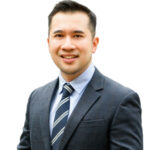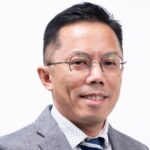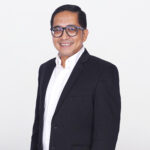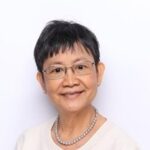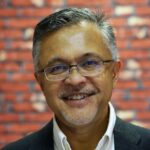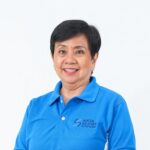Abstract
Southeast Asia, home to over 700 million people, is one of the most culturally and religiously diverse regions in the world. While tribal relations have remained stable in recent decades, deep-seated divides along racial, religious, and political lines still shape societies. In light of growing global tensions and nationalism, strengthening social cohesion is crucial to preserving the region’s harmony and multicultural way of life.
Notwithstanding the imperatives, there has been little systematic study of such sentiments—until now. The 2025 Southeast Asian Social Cohesion Radar (SEA SC Radar) seeks to measure national cohesion across all 10 ASEAN countries. This workshop invites distinguished academics and public thinkers from Southeast Asia to share with us their views on the SEA SC Radar’s findings and the implications for multicultural and multifaith dialogue in the region. Participants will gain firsthand insights and in-depth analysis on the state of cohesion among selected ASEAN member states.
About the speakers
Dr Priscilla Koh is an anthropologist and historian whose research examines ethnic identity and belonging, social memory, transnational migration, youth deviance and culture, and the narratives of marginalized communities in Southeast Asia. She is a Lecturer at Tembusu College, National University of Singapore, where she teaches interdisciplinary courses such as Seeing and Picturing Development in Southeast Asia, Skin and Identity, and Happiness by Design.
Prof Chang-Yau Hoon is a Professor at the College of Interdisciplinary and Experiential Learning, Singapore University of Social Sciences. He was formerly Professor of Anthropology at the Institute of Asian Studies, and former Director of the Centre for Advanced Research, Universiti Brunei Darussalam. Professor Hoon specializes in Chinese diaspora, identity politics, multiculturalism, and religious and cultural diversity in contemporary Southeast Asia. His latest books include Christianity and the Chinese in Indonesia: Ethnicity, Education and Enterprise (Liverpool University Press, 2023); Southeast Asia in China: Historical Entanglements and Contemporary Engagements (with Ying-kit Chan, Lexington Press, 2023); and Stability, Growth and Sustainability: Catalysts for Socio-economic Development in Brunei Darussalam (co-edited, ISEAS Publishing, 2023). His article published in Asia Pacific Viewpoint was awarded Wiley Top Cited Article 2022-2023 and his Asian Ethnicity article in 2006 was ranked the most cited article of all time.
Dr Leong Chan-Hoong is Senior Fellow and Head of Social Cohesion Research Programme at the S. Rajaratnam School of International Studies, Nanyang Technological University. He sits on the International Advisory Board at the Centre for Applied Cross-cultural Research, in Victoria University of Wellington, New Zealand.
Dr Philips J. Vermonte is the Dean of the Faculty of Social Sciences of the Universitas Islam Internasional Indonesia (UIII). Prior to joining UIII, he served as Executive Director of the Centre for Strategic International Studies (CSIS), Indonesia, and Chairman of the Indonesian Pollsters Association (Persepi). He was a Fulbright scholar and obtained his PhD in Political Science from Northern Illinois University, USA.
An expert in political affairs, his research interests include comparative politics, non-traditional security issues in Southeast Asia, Indonesia’s foreign policy and conflict studies.
Dr Chantana (Banpasirichote) Wungaeo is the emeritus professor of political science, Chulalongkorn University. Trained in interdisciplinary field, she taught and research on politics and development, sustainability, peace building/conflict resolutions, nonviolence and democracy. Past research and publications cover human security, crisis of democracy, creative tourism, youth political space, nonviolence, and conflict transformation. She also engages in research networks like Sustainable Mekong Research Network (SUMERNET), and unarmed civilian protection, and servs as a board member of the Foundation for Children Development.
Mr Ibrahim Suffian is a co-founder and programs director of Merdeka Center for Opinion Research, a leading public opinion polling and political surveys organization that has worked with and maintained close rapport across the entire Malaysian political spectrum. Through Merdeka Center, Ibrahim has been involved in organizing surveys in Indonesia, Thailand, Philippines, Brunei, Singapore and Myanmar.
Ibrahim received education from the Kelley School of Business at Indiana University and obtained an MBA from the Eli Broad College of Business at Michigan State University. Ibrahim was a World Fellow at Yale University in 2011 and is presently a visiting fellow at the Malaysian Institute for Strategic and International Studies.
Ms Linda Luz B. Guerrero is the President of Social Weather Stations (SWS), a leading non-profit in the Philippines known for conducting credible, scientific social surveys and opinion polls on public interest issues. She has played a key role in sustaining SWS for over three decades without consistent external funding, combining scientific expertise with entrepreneurial skill. Under her leadership, SWS has conducted surveys on diverse topics such as governance, corruption, public safety, and the welfare of marginalized groups.
She has expanded SWS into a globally recognized full-service survey organization, contributing to international research networks like the World Values Survey and the Asian Barometer. A recognized expert in cross-cultural survey research, she has also promoted staff training and technological advancement. Ms. Guerrero is the current President of WAPOR Asia Pacific (until 2025), and has received multiple honors, including the Fulbright scholarship (2002), the Betty Go Belmonte Award for Peace and Social Cohesion (2019), and the Mariang Maya Award for Social Research (2023).



 Add to Google calendar
Add to Google calendar
 Add to Outlook calendar
Add to Outlook calendar

